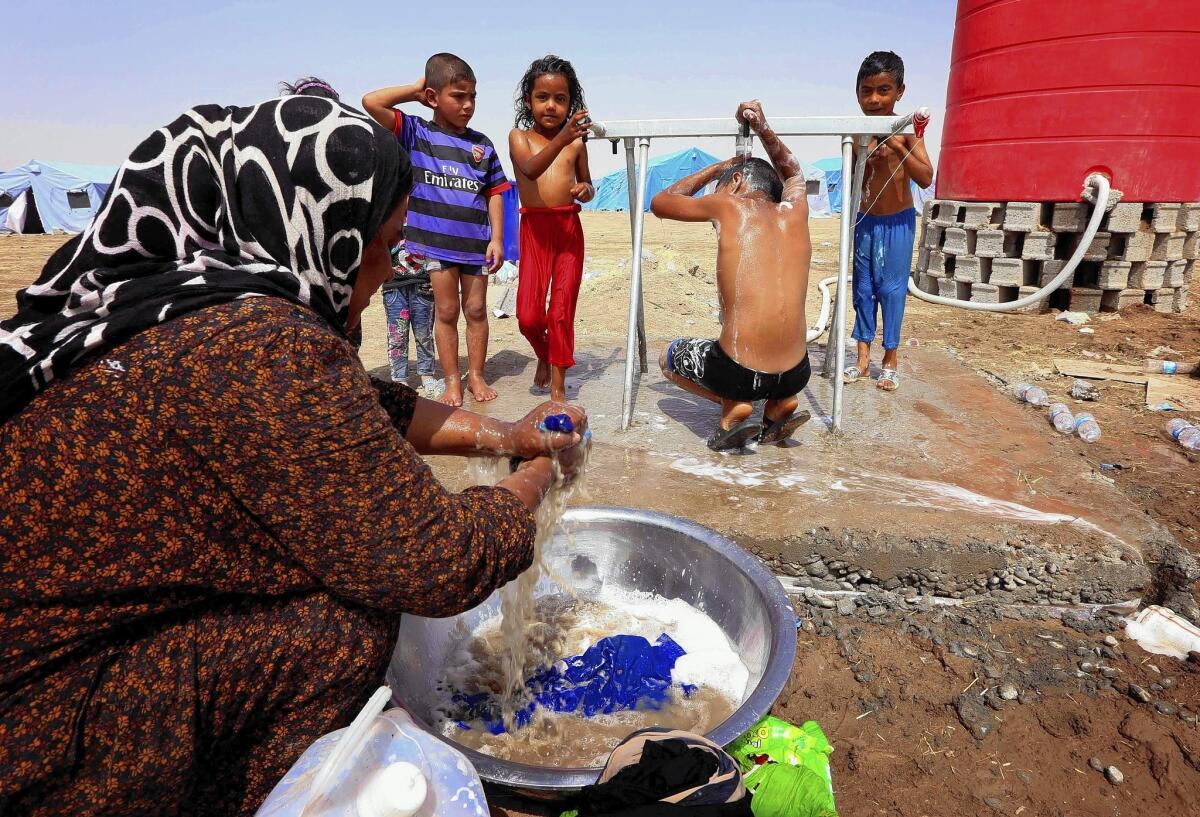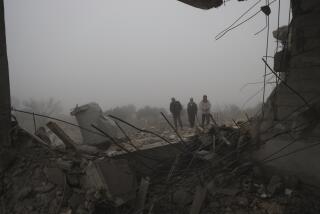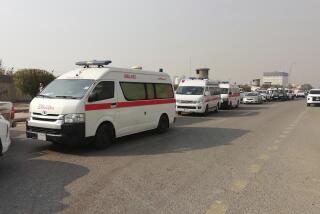Some residents returning to Iraqi city held by Islamic militants

A bus headed to the Iraqi city of Mosul on Friday was nearly filled to capacity as many residents returned home just days after fleeing an attack by Islamic militants who overran security forces.
The driver, Muhsen Kanaan, laughed and scoffed at the notion that residents might be returning to a war zone. Despite pledges by Prime Minister Nouri Maliki to drive militants with the Islamic State of Iraq and Syria, or ISIS, out of Mosul, government forces did not stand a chance, Kanaan said.
“Maliki?” said Kanaan, 43. “Let him save himself in Baghdad.”
The push this week by militants into several Iraqi cities, including Mosul and Tikrit, hometown of the late dictator Saddam Hussein, sent an estimated 500,000 people fleeing east. Militants, often facing little resistance from government forces, seized oil fields in Salahuddin province, looted the central bank in Mosul of $420 million and vowed to take over Baghdad, the Iraqi capital.
Many residents sought refuge by heading to Irbil, in the autonomous Kurdistan region protected by peshmerga security forces. But those without relatives or sponsors in the Kurdish areas — at least several hundred — were forced to stay in hastily prepared tents at the Khazer checkpoint near Mosul.
Aid agencies at Khazer were preparing for more people who might need help. And not everyone was convinced that Iraqi government forces would not retaliate.
“It’s a confusing time for these refugees ... not knowing if they should go back,” said Mustafa Karim, an aid distribution officer. “It will get worse when the army strikes. This is just the calm before the storm.”
Some peshmerga forces, identifiable by their distinctive crimson berets, monitored the area around the checkpoint from concrete watchtowers while others used guard dogs that sniffed for explosives and weapons. They did not seem particularly concerned about encountering attacks by other forces.
“We’re going to defend our land,” one peshmerga fighter said. “We won’t run away like the Iraqi army.”
The Iraqi government, meanwhile, has called for Mosul residents to join paramilitary groups, dubbed “popular committees,” to help fight ISIS. It remains unclear what level of support can be expected from Mosul’s Sunni Muslim majority for a government under Maliki, a Shiite Muslim hard-liner whose policies alienated many Sunnis after the fall of Hussein.
Activists in Mosul posted pictures of jubilant residents welcoming black-clad ISIS fighters as “revolutionaries” and “Muslim brothers,” while others took advantage of the army’s departure to remove concrete barriers and checkpoints that made Mosul akin to an open-air prison, residents said.
“The Islamic State released us from the army,” said Dahaam Ubaidy, 45, a Mosul resident who insists on not using the militant group’s acronym, which supporters consider derogatory. “All you could do before was wait and see when they could come get you. The army had destroyed us.”
A laborer in the Kurdish area, Ubaidy insisted that Mosul was “heaven” and that the militants were welcome.
“It’s not about religion. I say this before everyone,” he shouted, getting out of his car in the Khazer checkpoint area and turning to travel-weary passengers around him. “They’re good people. We pray to God they stay.”
Activists also uploaded pictures of Mosul residents cleaning roads and removing burned vehicles from the streets.
Some residents, however, were concerned about the Islamic State of Iraq and Syria, known for its harsh interpretation of sharia, or Islamic law.
The group declared Friday that it would apply sharia in Mosul, as activists reported the distribution of a leaflet imposing a new code of conduct banning cigarettes and other substances, branding as infidels all who would disobey its edicts, and promising death to Shiites and all who worked with the government.
Nineveh provincial Gov. Atheel Nujaifi, who had fled the Mosul attack, said that although ISIS had taken advantage of citizens’ anger with the behavior of the army and security organizations, such a way of life would be rejected.
Some Mosul residents, like Hamidiyeh, who declined to give her last name, said they would never go back. The 40-year-old’s family, including eight children, was crammed into a tent at Khazer.
“I’m going to die here. I won’t go back. I’ve had enough,” she said as she carried a bag of food back to her family. “We’re sick of Maliki, of Saddam, of everyone. I don’t care anymore.”
Bulos is a special correspondent.
More to Read
Start your day right
Sign up for Essential California for news, features and recommendations from the L.A. Times and beyond in your inbox six days a week.
You may occasionally receive promotional content from the Los Angeles Times.







